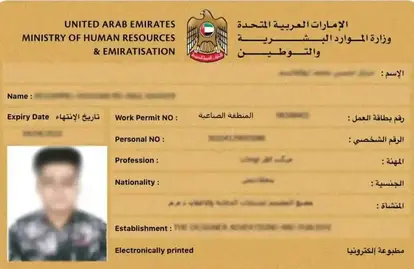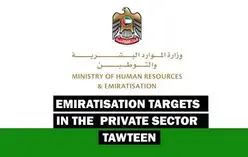Introduction
The UAE’s labor market is evolving to meet the needs of both employers and employees. As part of this evolution, flexible job contracts, including temporary work and part-time work, are gaining popularity. These contracts provide more adaptability and freedom, allowing businesses to manage their workforce efficiently and employees to achieve a better work-life balance.

What are Flexible Job Contracts?
Flexible job contracts in the UAE encompass various types of work arrangements that deviate from the traditional full-time employment model. Two primary forms of flexible job contracts are temporary work and part-time work.
Temporary Work
Temporary work involves hiring employees for a specific period or project. This type of contract is ideal for businesses that need to address short-term needs or seasonal demands without committing to long-term employment.
Part-Time Work
Part-time work allows employees to work fewer hours than a full-time schedule. This arrangement is suitable for individuals who need to balance work with other commitments, such as education, family, or personal interests.
Key Features of Flexible Job Contracts
Temporary Work
- Fixed Duration: Employment is for a specific period or until the completion of a project.
- Flexibility: Suitable for addressing short-term needs or project-based work.
- Defined Scope: Roles and responsibilities are clearly outlined for the duration of the contract.
- No Long-Term Commitment: Employers are not obligated to retain employees beyond the contract period.
Part-Time Work
- Reduced Hours: Employees work fewer hours than full-time employees, typically less than 30 hours per week.
- Flexible Scheduling: Work hours can be arranged to suit both the employer’s needs and the employee’s availability.
- Pro-rated Benefits: Benefits such as salary, leave, and health insurance are often provided on a pro-rata basis.
- Work-Life Balance: Allows employees to manage other commitments alongside their job.
Benefits of Flexible Job Contracts
For Employers
- Cost Savings: Reduced need for full-time staff can lower payroll and benefit costs.
- Scalability: Ability to scale the workforce up or down based on demand.
- Access to a Wider Talent Pool: Attracts individuals who prefer or require flexible working arrangements.
- Increased Productivity: Employees with balanced schedules are often more motivated and productive.
For Employees
- Flexibility: Ability to balance work with personal or educational commitments.
- Less Stress: Reduced hours and flexible scheduling can decrease work-related stress.
- Diverse Opportunities: Opportunity to work on various projects or with different employers.
- Improved Work-Life Balance: More time for personal interests, family, and self-care.
How to Implement Flexible Job Contracts
- Identify Needs: Determine which roles and tasks can be adapted to temporary or part-time work.
- Consultation: Discuss potential changes with current and prospective employees to understand their preferences.
- Draft Contracts: Create clear, legally compliant contracts outlining terms, duration, and responsibilities.
- Agreement: Ensure mutual agreement and signature on the contract by both employer and employee.
- Monitor and Review: Regularly review the arrangement to ensure it meets the needs of both parties.
FAQ
What is a Flexible Job Contract?
A flexible job contract allows for non-traditional work arrangements, such as temporary or part-time work, tailored to meet the needs of both employers and employees.
What is the difference between temporary work and part-time work?
Temporary work is for a fixed period or specific project, while part-time work involves working fewer hours than a full-time schedule on an ongoing basis.
Who can request a flexible job contract?
Any employee can request a flexible job contract, but its implementation depends on the job nature and employer’s agreement.
How do flexible job contracts benefit employees?
They offer better work-life balance, reduced stress, flexibility to manage other commitments, and opportunities for diverse work experiences.
How do they benefit employers?
Employers benefit from cost savings, scalability, access to a wider talent pool, and potentially increased productivity.
What should be included in a flexible job contract?
Contracts should include details of working hours, duration, specific tasks or projects, mutual agreements, and compliance with UAE Labour Law.
Are employees on flexible job contracts entitled to benefits?
Yes, but benefits such as salary, leave, and health insurance are often provided on a pro-rata basis for part-time employees.
Can a flexible job contract be changed once agreed upon?
Yes, changes can be made but must be mutually agreed upon by both parties and documented in an updated contract.
Is temporary work allowed under UAE Labour Law?
Yes, temporary work is permitted and must comply with UAE Labour Law, ensuring the rights and protections of employees.
How often should flexible job contracts be reviewed?
It is advisable to review the contracts periodically, such as annually or at the end of each project for temporary work, to ensure they continue to meet both parties’ needs.
Conclusion
Flexible job contracts, including temporary work and part-time work, are transforming the UAE labor market. These contracts offer numerous benefits for both employers and employees, fostering a more adaptable and balanced work environment. By understanding and implementing these flexible arrangements, businesses can thrive while supporting their employees’ diverse needs.
You should read this also: Updated List of Professions in the UAE









